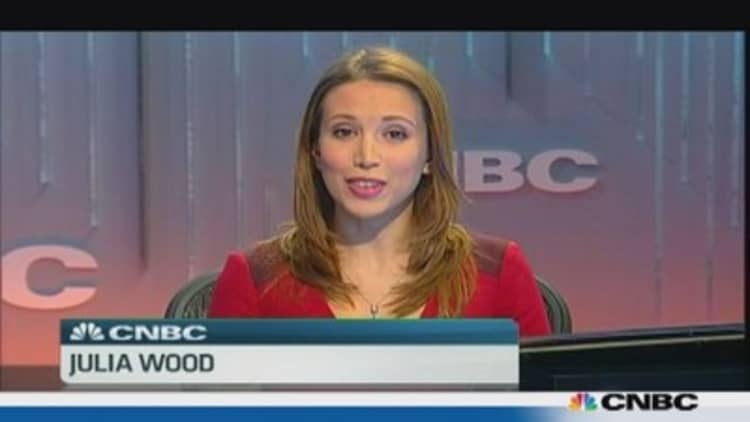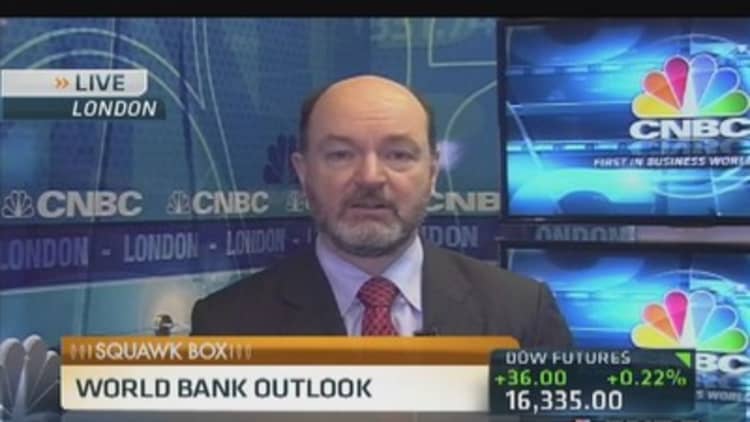
Global growth is set to accelerate in 2014 as advanced economies turn a corner five years after the global financial crisis, said the World Bank.
Growth is projected to strengthen to 3.2 percent this year, 3.4 percent in 2015, and 3.6 percent in 2016 - up from 2.4 percent in 2013.
"Most of the acceleration is expected to come from high-income countries, as the drag on growth from fiscal consolidation and policy uncertainty eases and private sector recoveries gain firmer footing," the World Bank wrote in its newly-released Global Economic Prospects report on Wednesday.
Stronger growth and increased demand from developed nations will be an important tailwind for developing countries and should help compensate for the impending tightening of financial conditions, the Washington-based development bank said.
(Read more: 'Dr. Doom' Roubini gets bullish on global economy)
Growth in high-income countries is forecast to quicken to 2.2 percent this year from 1.3 percent in 2013. Meanwhile, growth in developing countries is estimated to pick up modestly to 5.3 percent from 4.8 percent.
The bank says the withdrawal of quantitative easing and corresponding increase in global interest rates is expected to weigh only modestly on investment and growth in developing countries as capital costs rise and capital flows moderate in line with a global portfolio rebalancing.

"When we look at what's happened since December, markets have been broadly calm. And that gives us some confidence that we might see a much more smooth process going forward," Andrew Burns, a top forecaster at the World Bank and chief author of its Global Economic Prospects report, told CNBC Wednesday.
(Read more: After taper talk in 2013, this will dominate 2014)
However, if a tapering of the Federal Reserve's asset purchase program is met with an abrupt market adjustment, capital flows could decline sharply, placing renewed stress on vulnerable developing economies, it warned. "In a scenario where long-term interest rates rise rapidly by 100 basis points, capital inflows could decline by as much as 50 percent for several quarters," it said.
While major tail-risks have subsided, fiscal policy uncertainty in the United States, a protracted recovery in the euro zone, and possible set-backs in China's restructuring continue to pose risks to global outlook.
(Read more: Five things that could go wrong in 2014)
A successful rebalancing of the Chinese economy from investment-led to consumption-driven presents a "formidable challenge."
An involuntary and abrupt decline in investment rates could have a significant impact on growth in the world's number two economy, and knock-on effects in the region and among economies with close trading linkages including commodity producers, the World Bank said.
Nevertheless, it expects growth of 7.7 percent for the mainland economy in 2014, steady from an expected 7.7 percent last year.
—By CNBC's Ansuya Harjani. Follow her on Twitter @Ansuya_H



